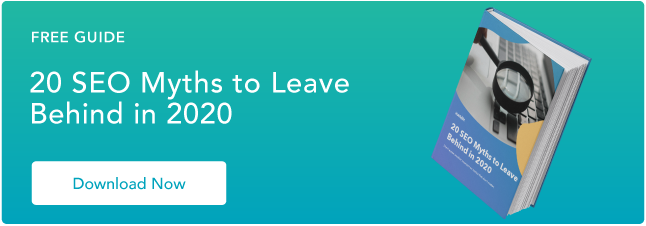 Ugh. Off-page SEO. How the heck are we supposed to do that stuff?
Ugh. Off-page SEO. How the heck are we supposed to do that stuff?
Remember back in the day, when you could work out those sweet link exchange deals with your buddies? “Hey man, I have a site, and you have a site … how about I link to your site a bajillion times, and you link to my site a bajillion times?!” Boom. Off-page SEO = Done.
Of course, such practices never really fit with Google’s mission of organizing the world’s information and making it accessible/useful. When a Boston-based seafood restaurant website has thousands of backlinks from a Tokyo-based robotics website, the connection is tenuous (at best), and will likely be of no use to searchers. Google has also been known to drop the proverbial hammer-of-SEO-doom on numerous occasions when they catch companies partaking in those types of deals.
So, with link exchange deals off the table, we marketers turned to guest blogging. I mean, that’s totally legit, right? If you’re a marketing company, and I’m a marketing company, why don’t we just write relevant, industry-specific marketing content for each other … and send some links back our respective ways while we’re at it, of course?
Welp, you can go ahead and throw your precious guest posts out the window too, as Google’s Matt Cuts has warned us that guest blogging is no longer a viable off-page SEO tactic. (More on that later.)
So, if we can’t buy these links, and we can’t barter for these links, and we can’t guest-blog our way to these links, how the heck do we get them?
For the short answer, keep reading. For the more detailed answer, check out our updated guide, Learning SEO From the Experts.
Content: Reigning King of SEO
Here is the new key to off-page SEO … ready? You need to be creating content that other people find valuable and want to share with their visitors.
That’s it. That’s the secret sauce. And FYI, that’s according to Google. Here’s an excerpt:
“Natural links to your site develop as part of the dynamic nature of the web when other sites find your content valuable and think it would be helpful for their visitors.”
Put another way, modern off-page SEO isn’t about exchanging or building links, it’s about earning links. Google doesn’t want you to find some loophole for generating links, they want you to create web content that people actually like and want to link to naturally.
Keep in mind that those “natural links” you earn through creating valuable content have their (evil) counterparts in “unnatural links,” which are links that are put in place “specifically to make your site look more popular to search engines.”
In conclusion: Creating content for humans? Good for off-page SEO. Creating content for robots? Bad for off-page SEO.
Hmmm. Why does this all sound so familiar?
Off-Page and On-Page SEO: The Singularity
Marketers have traditionally distinguished between on-page and off-page SEO using the following rubric:
- On-page SEO = Keywords
- Off-page SEO = Links
With on-page SEO, the goal is to use — but not abuse — relevant keywords that fit naturally within your site content. And that content, of course, needs to be written by humans, for humans, and humans should find that content useful and find that it aligns well with what they’re searching for.
In contrast, with off-page SEO, you should … umm … you should … hmm. Well, it turns out you should do the exact same thing.
As marketers, we’re now faced with a classic two birds/one stone scenario: Through the creation of quality content, you can help attract visitors to your site and earn natural inbound links. Or as Google puts it, “If your pages contain useful information, their content will attract many visitors and entice webmasters to link to your site.” (If you’re wondering how social fits into all this, check out the full ebook to hear from Dharmesh Shah himself on the matter.)
Pssst. Need some help creating stellar content for tackling your on- and off-page SEO? Check out these free resources:
To Guest Blog or Not to Guest Blog?
That is the question. And it’s kind of a tricky one.
For starters, Google is on the record saying that guest blogging was once a respectable practice, but has since devolved into spam central, with unsolicited email requests regularly clogging up inboxes.
According to Google’s Matt Cutts, “If you’re using guest blogging as a way to gain links … you should probably stop. Why? Because over time it’s become a more and more spammy practice, and if you’re doing a lot of guest blogging then you’re hanging out with really bad company.”
Yikes. So if guest blogging is no longer a valid way to build inbound links, should we just quit guest blogging altogether?
Not necessarily.
If your intentions are good, and you take precautions to prevent spamminess, guest blogging can still be valuable from a PR/community-building perspective. Think of it as getting back to the golden days of guest blogging, when — according to Cutts — it was a “respectable thing, much like getting a coveted, respected author to write the introduction of your book.”
Here are a few tips to make sure you’re staying on track:
- Only write posts for — and accept posts from — established, reputable sites
- Use no-follow links, so Google doesn’t pass SEO authority between your sites
- Original content only: Don’t publish a post that’s already published somewhere else (and don’t send the same guest post to multiple publishers).
- Don’t send out mass unsolicited emails asking for guest blogging opportunities (<<sound spammy? It is.)
Want more insight into the world of on- and off-page SEO? Download our updated guide, Learning SEO From the Experts.
![]()







